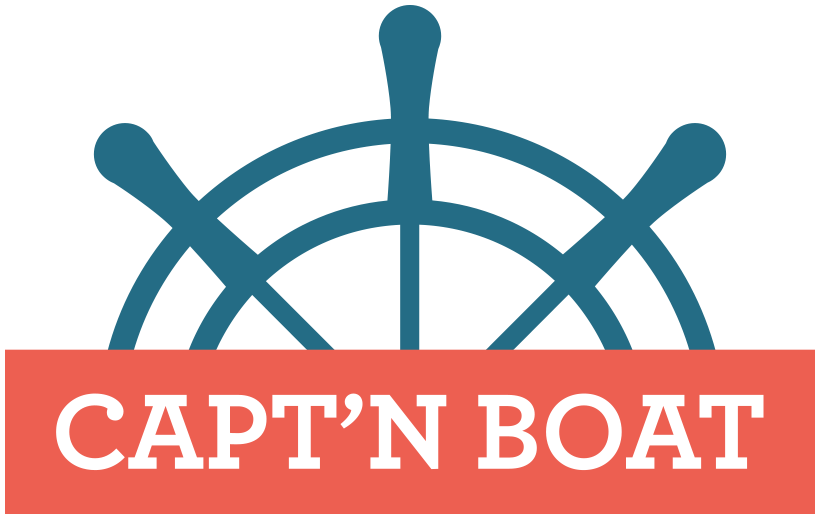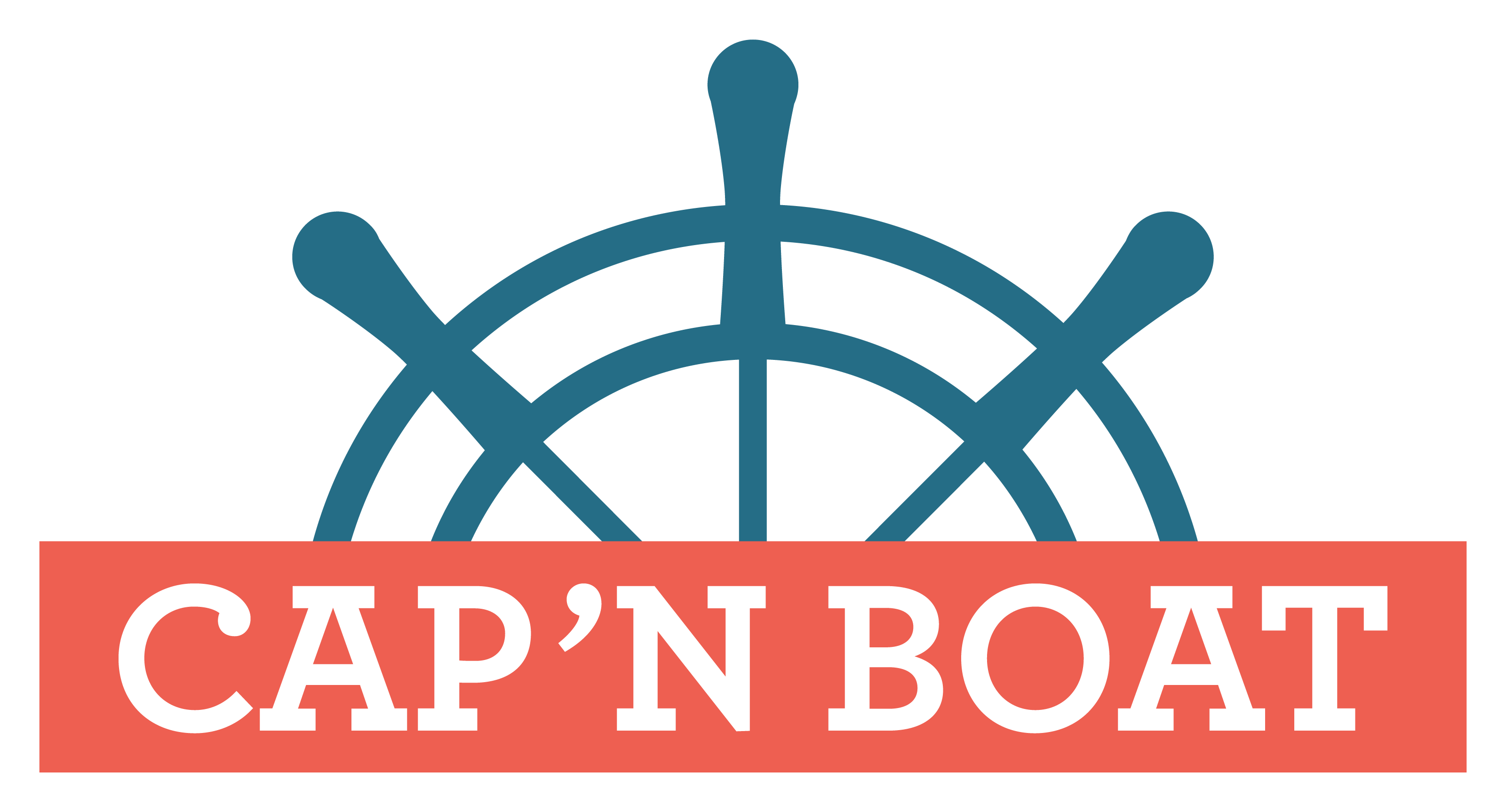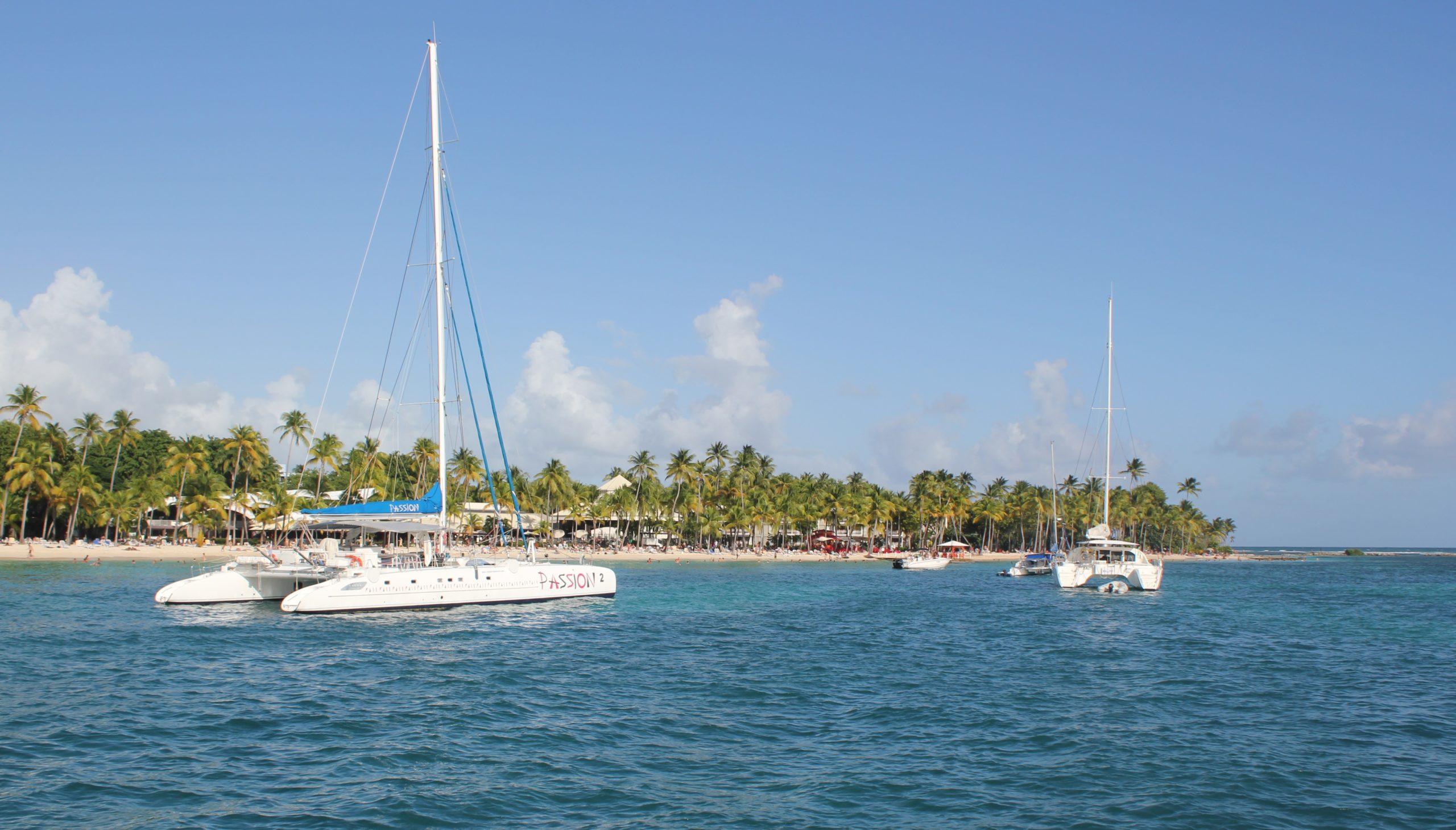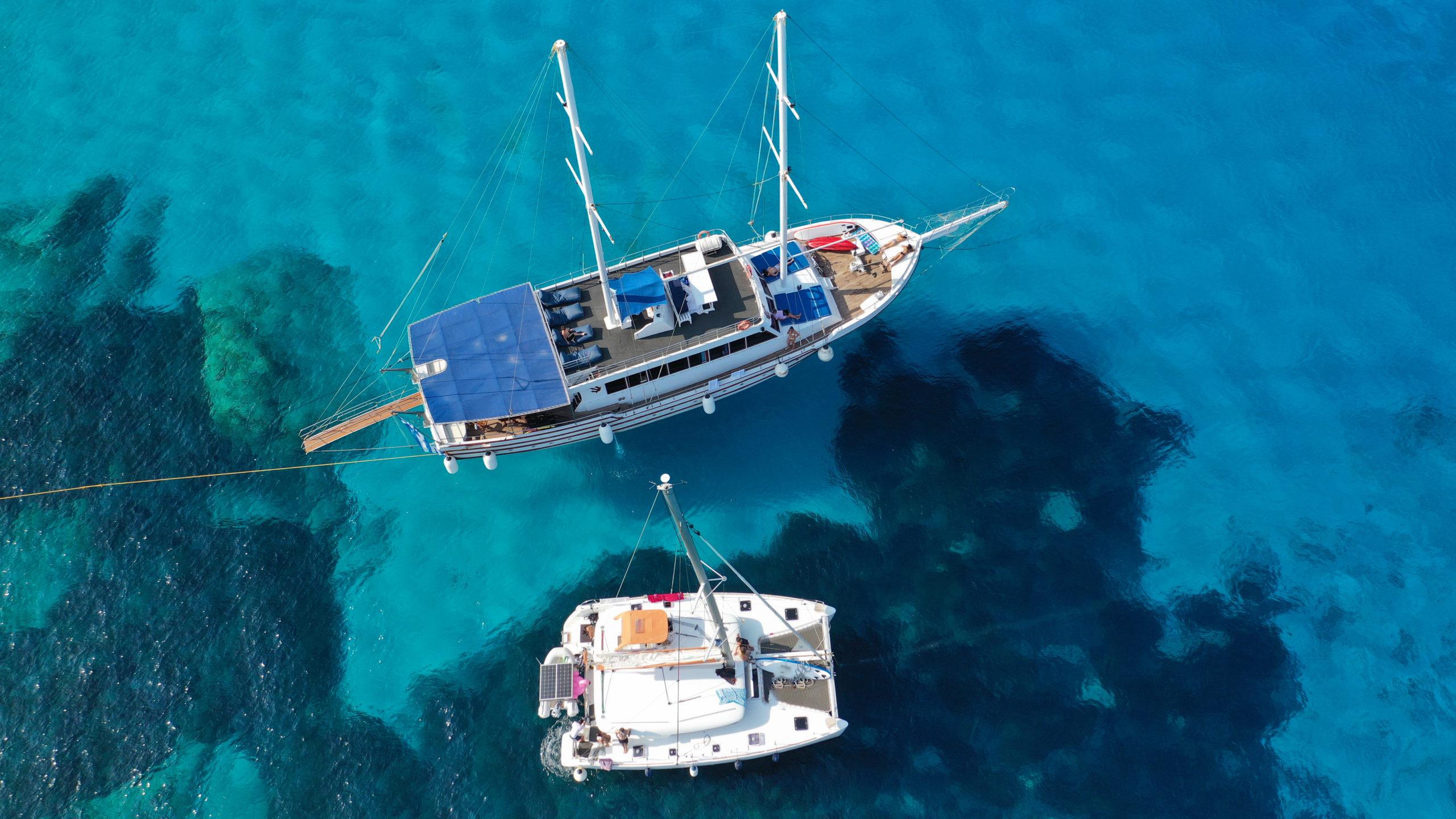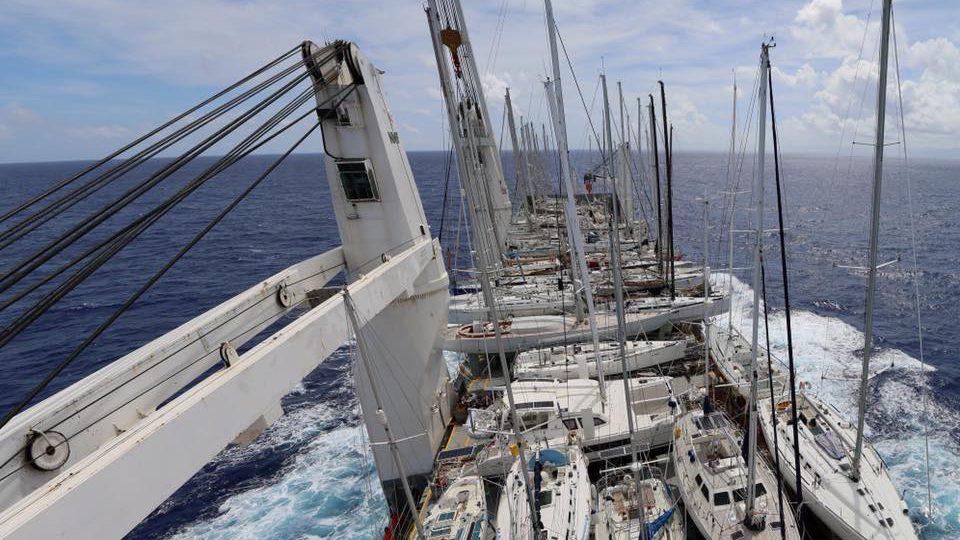
How to Convoy a Boat: By Sea, Land or Cargo?
How to convoy your boat? What are the most suitable modes of transfer between cargo, sea and land? This is a question that many boat owners ask themselves, and we are going to give you some answers.
Conveying a boat means transporting/moving a boat from point A to point B. The aim is to move the boat as quickly as possible while ensuring that it is as undamaged as possible.
There are several options for shipping a boat, depending on the destination, model and size of the boat.
To help you choose which solution is best suited to your needs, Capt’n Boat explains the different methods of conveying and lists their advantages and disadvantages for you.
1. Convoy a boat, what for?
Ferrying a boat from point A to point B can be done for several purposes:
- Transfer your boat to a new sailing area (if your boat is in Brittany and you want to discover the Mediterranean for example).
- Moving your boat from home port to a yard for maintenance and/or wintering.
- Convoying your boat/fleet according to the seasons (From mainland France to the West Indies).
- Moving your boat after purchase to its home port / at your home (purchase of a boat abroad and repatriation to France).
– Why hire someone to do a boat delivery?
Convoying a boat takes time and skill, and as a boat owner it can be difficult to combine the two. This is why most of the time, boat owners use professionals to make up for their lack of time and skills, and carry out the ferrying.
At this stage, the question remains as to which mode of conveyance to opt for.
2. Convoying your boat by cargo
Cargo delivery means that the boat will be stowed on a cargo vessel / put in a container. So the ship will not sail.
This option is very suitable for large motor yachts, but also for sailing yachts.
A. Advantages of moving a boat by cargo
- Full service: Maritime transport companies usually offer a full service with all loading, transport and customs formalities.
- Speed: Transporting your boat by cargo is generally faster, your boat is not directly subject to the vagaries of the weather (lack of wind…).
- Safety: Transporting your boat by cargo protects it from deterioration and wearing out. This option avoids the risks of sailing at sea, no breakage due to a storm, nor delays due to a lack of wind.
B. Disadvantages of transporting a boat by cargo
However, there are also some constraints to boat delivery by cargo:
- Lack of flexibility: The date, place of loading and unloading of the boat are fixed and planned by the company.
- Expensive: Convoying by cargo remains more expensive overall than convoying by sea. In addition, there are many extra costs: the need for a trailer, berthing, preparation of the boat, etc.
- Theft: Several owners have noted theft of equipment, intrusion and damage to the interior of boats during the crossing. It is therefore very important to choose the right company and to have a complete insurance for your boat.
- Multiplication of intermediaries: boat delivery by cargo may require an initial delivery by sea or by land to reach the cargo loading site.Cela oblige le propriétaire à effectuer 2 convoyages ou plus : du lieu de départ jusqu’au port de chargement, le second du port de chargement jusqu’au port de déchargement, le dernier du port de déchargement au nouveau port d’attache. Et pour cela faire appel à des prestataires différents ce qui implique généralement une multiplication des coûts.

C. The cost of a boat delivery by cargo?
The price of a cargo transport depends on the distance, the size of the boat, the equipment provided (own trailer or not) and the services needed (craning, etc.). The price is often high.
Example: For a cargo delivery from South Brittany to the West Indies, you need to calculate ~20,000 € for a 42-foot monohull. To this must be added €5,000 for the sea delivery to get the boat from La Trinité-sur-Mer (France) to the Balearic Islands (departure of the cargo delivery) and all the preparation costs: dismasting, craning, launching… Against ~13 000 € for a convoy by sea with a professional skipper La Trinité-sur-Mer – The West Indies.
3. Conveying your boat by sea
Convoying by sea means that the boat will sail. If you don’t have the time to move your boat yourself, hiring a professional skipper is a very good option.
The skipper’s mission (and his crew if necessary) will be to bring the boat to its destination. To do this, his itinerary will be defined exclusively according to technical criteria: provisioning, filling up with water and diesel, avoiding risky areas and timing.
The professional skipper will have to meet the qualification requirements and will be responsible for choosing a crew (if necessary).
Capt’n Boat offers a wide range of experienced skippers to carry out boat deliveries. By opting for a Capt’n Boat skipper, you will benefit from multi-risk and damage insurance covering up to 1 million euros. This insurance also covers the loss of operation or use of the boat.
Create an ad and find a Capt’n Boat skipper to convoy your boat!
A. Advantages of convoying a boat by sea
- Sailing: The sea convoy allows your boat to sail, and that’s what it was designed for! The professional skipper will be able to evaluate and test the boat’s equipment and give you an overview once arrived in port.
- Experience: Professional skippers who carry out boat delivery are familiar with the exercise, the boats and the navigation. They must meet qualification requirements that demonstrate their ability to convoy a boat.
- Flexibility: A professional skipper will be attentive to your needs and will be able to adapt to your request (date, place, costs…).
- Tracking: Throughout the voyage, the skipper will keep a logbook in which he will detail the progress of the voyage. This will allow the owners to know the conditions of the voyage, the stages as well as any potential damage.
- Affordability: Convoying boat by skipper is generally more affordable than other modes of delivery.
B. Disadvantages of convoying a boat by sea
- Wear and tear: The boat will be sailing. This implies that it will be subjected to the assaults of the swell, the wind… and that it can potentially suffer damage and breakage. Some routes are safer and more suitable for sea convoys. It is indeed preferable to choose the sea for an outward transatlantic (East-West), downwind, much less tiring for the boat than a return transatlantic, upwind.
- Time: The journey by sea is generally longer. The boat is subject to weather conditions. Lack of wind, breakages, the route… can lengthen the journey.

C. How much does a boat delivery cost?
The cost of a convoy by sea varies according to the distance to be covered and the characteristics of the boat. Depending on the distance, the size and the equipment of the boat, a crew will be required.
It costs between 3.50 and 5 € per nautical mile. This package includes the services of the skipper and crew if any.
In addition, there are the costs of provisioning (food, fuel, port…) and travel for the skipper/crew.
This is one of the most economical options for moving a boat.
Example: Convoying by sea from St Vaast to La Grande Motte (France) of a Dufour 445 Grand Large: plan ~12 days of sailing for 6 000€.
Create an ad on Capt’n Boat to find a skipper:
4. Transporting a boat by land
More suitable for transporting motorboats, delivery by land requires the boat to be loaded onto a trailer.
For small boats (RIBs), it is fairly easy to move your boat yourself (but be careful not to exceed the maximum towing weight limit of 3.5 tonnes per van).
However, for larger entities, it will be necessary to resort to companies specialised in transport, which will have the means of port handling adapted to the handling of boats: crane, cradle, trailer for sailboat or motor, and the necessary permits…
A. Advantages of transporting a boat by land
- Speed: This method of travel is very efficient especially for small (motor) boats.
- Safety: The boat will be securely attached to the trailer or in a truck, so it will not be subject to the weather and the risks of breakage and damage are very limited.
B. Disadvantages of moving a ship by land
- Expensive: The delivery by truck/trailer is quite expensive, it is often necessary to add the preparation of the boat, the craning, the stowage…
- Additional equipment: Depending on the size of the ship and the need, a special convoy may be required. This requires additional logistics and therefore additional costs.
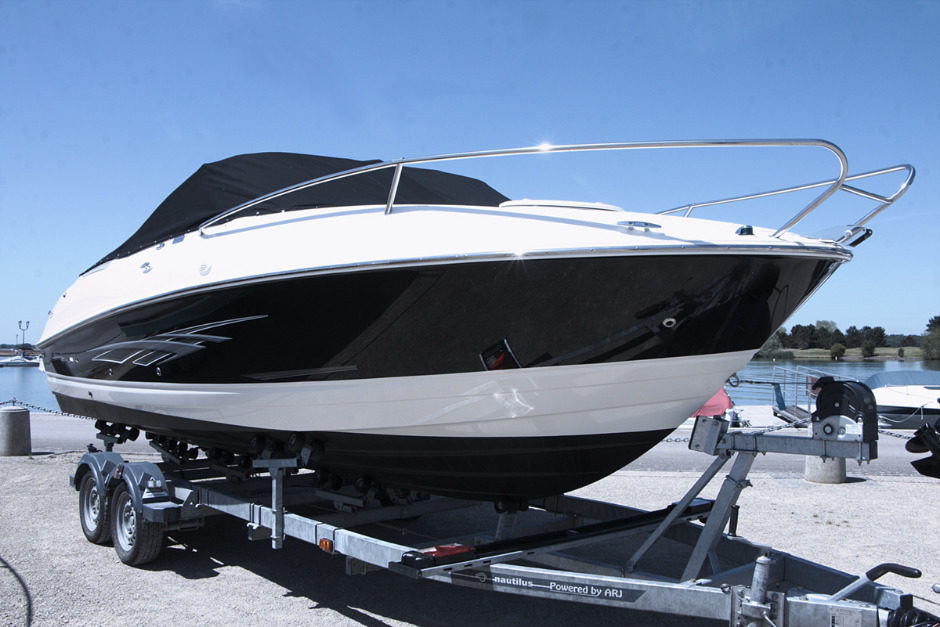
C. How much does it cost to transport a boat by land?
The cost of transport by land also depends on the distance to be covered and the size of the boat.
Additional costs may be added depending on the requirements: loading and unloading, preparation of the boat for transport, etc.
Example : Transport by land from St Vaast to La Grande Motte of a Dufour 445 Grand Large, count 10 000€ to which must be added the removal of the mast, crane…
Conclusion
Before deciding on a solution, be sure to have the characteristics of your boat in mind and a clear vision of your needs.
Depending on the itinerary and your deadlines, it may be preferable to convoy your boat by sea, by land or by cargo.
Contact several boat transport companies / professional skippers and ask for quotes to compare options.
Once you have all these answers you can choose the best solution to move/convoy your boat!
Keep up to date with our new articles, regulatory issues and news:
 CaptnBoat.com
CaptnBoat.com